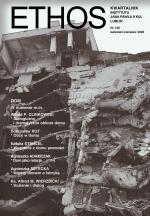 zobacz powiększenie | DOI 10.12887/33-2020-2-130-11 Agnieszka ADAMCZAK, Home as a Relationship: Henry David Thoreau’s Ideas for Building Democracy Cena brutto: 7,00 PLN za szt. |
|
According to the interpretation proposed in the article, Henry David Thoreau uses the concept of home as a starting point for discussing democracy or, more precisely, democratic education. Thoreau’s moving the center of gravity in the discussion towards certain activities semantically related to the concept of home and centered around home, such as inhabiting, domestication, attachment or furnishing, is grounded in his redefinition of home so that the latter is no longer understood as a place, or a building with its material equipment, but involves a particular kind of relationships established by an individual. For the nineteenth-century philosopher, relationality is also one of the foundations of democracy. The author of the paper justifies her emphasis on the home-related metaphors in the context of democratic education by pointing to Thoreau’s focus on the experiential dimension of democracy which consists of—transient and thus difficult to grasp—everyday micropractices whose quality depends on developing appropriate dispositions by an individual, i.e., critical thinking, a fresh, opening-up mode of perception, care, hospitality or abandoning attempts at total control over every-day reality. The category of domestication, as seen by the American Transcendentalist, is one of the ‘common denominators’ which help explain the relationships such as ‘self–self,’ ‘self–home,’ and ‘self–the world.’ Keywords: home, democratic education, critical thinking, perception, relationship Contact: Katedra Historii Doktryn Politycznych i Prawnych, Wydział Prawa i Administracji, Uniwersytet Jagielloński ul. Bracka 12, 30-005, Cracow, Poland | |
